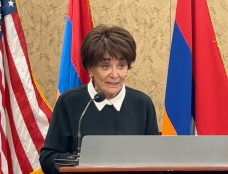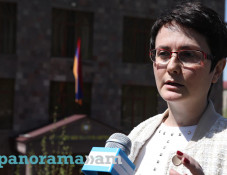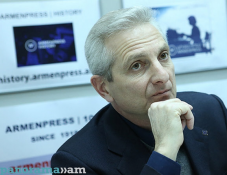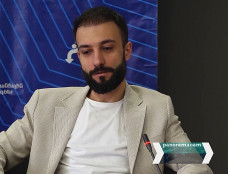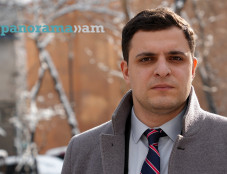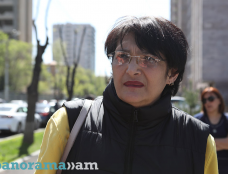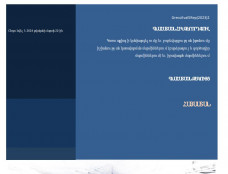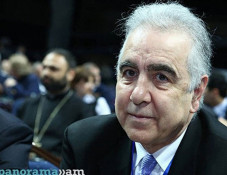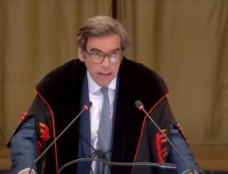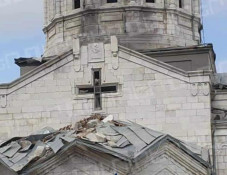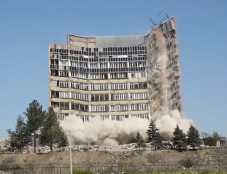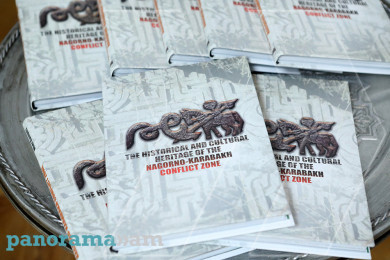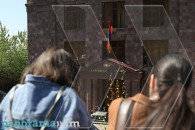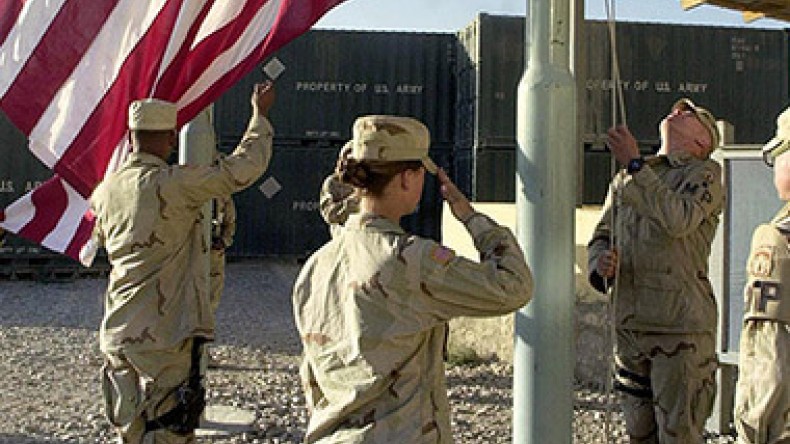
Afghanistan conflict: When Enduring Freedom is turned asunder
By Phillip Butler, RT
In December of 2001, the mightiest military force the world has ever known launched 'Operation Enduring Freedom' in Afghanistan. Today, the US and NATO military mission in that distant country officially comes to a close, but the foe remains unvanquished.
I am writing this piece to caution the leaders of free nations, before you leap into more asymmetrical warfare abroad, please examine the outcomes of Afghanistan first. Let me begin by pointing out that just before America entered her longest war, then-President George W. Bush was quoted as saying:
“We will direct every resource at our command — every means of diplomacy, every tool of intelligence, every instrument of law enforcement, every financial influence, and every necessary weapon of war — to the destruction and to the defeat of the global terror network.”
Thousands of lives, trillions of dollars, 13 years, and a loss of America’s reputation and prestige in the world. All that brought about nothing positive whatsoever. Not only have the Taliban and Al-Qaeda not been destroyed, the global threat of conflict is even more vehement today. Many experts fear the long-range effects of America’s wars will be perpetual attacks of retribution. We are witnessing, even now, the beginnings of this.
As NATO's International Security Assistance Force Joint Command lowers its flags, American and coalition forces engage ISIL across Syria and Iraq, and brazen Taliban attacks certify all our worst fears. Al-Qaeda has restarted training camps within Afghanistan. The Taliban has launched more than a dozen attacks targeting foreigners in just the last few weeks. These and other such events punctuate the reality that we accomplished absolutely nothing positive in Afghanistan. The saddest part of this reality for many is the brave men and women who fought and died there; they and their families only have their honor to show for their ultimate sacrifices. However, the military failures in Afghanistan will later be seen as secondary to what America and her allies have lost as free nations.
In the maelstrom of emotion following the 9/11 attacks, and in these ensuing years, a major shift occurred. A shift not too often noted in the mainstream, but a policy dogma that has halted the march of nations toward peace. If we recall, back in September 2001 the US Congress passed legislation titled 'Authorization for Use of Military Force Against Terrorists,' that George W. Bush signed into law. Though it was later overturned by the US Supreme Court, the law authorized the use of US Armed Forces against those responsible for the 9/11 attacks. The intent of this law set the tone for America’s foreign policy up until today. Then-President Bush would also “re-label” Taliban forces as “supporters of terror,” rather than as soldiers, in order to get around the Geneva Convention. These legal shenanigans to get around international law ultimately led to unlawful detentions, constitutional infringements, torturing individuals without due process, the NSA excesses, and still more proxy wars across the globe now. Today, leaders only seem to need to admit the readily indefensible – rather than seek any real remedy. To quote President Barack Obama:
“With respect to the larger point of the RDI report itself, even before I came into office I was very clear that in the immediate aftermath of 9/11 we did some things that were wrong. We did a whole lot of things that were right, but we tortured some folks. We did some things that were contrary to our values.”
Indeed. It is America’s values, America’s position in the world, that has suffered most because of these last years. Where once collateral damage to civilians was an outrage, today drones and technology have made clinical the horrors of ancient wars. The Costs of War Project estimates that some 174,000 plus civilians have died in Afghanistan (21,000) and northern Pakistan since Enduring Freedom was launched. These casualties leave a dark red stain on our ideals about freedom, but the methodologies of this war indicate other real perpetrators of ongoing terror. The profiteers have an interest in wars, after all.
The reader may be surprised to find out that US troops in Afghanistan have used more small arms munitions per insurgent killed than in any war in history. That’s right, at a point in the Afghanistan conflict, munitions manufacturers in the US could not keep up with the demand for bullets. The situation got so bad the US had to import ammo from Israel just to keep their rate-of-fire up. At the peak, it took 250,000 rounds of ammo to kill one Taliban guerilla. And no, I am not exaggerating. As for the total munitions expenditures by coalition forces in Afghanistan, it appears no one on Earth has this estimated in total. However, the types and spot usage of killing devices in this war are cataloged. For instance, some 1,228 cluster bombs containing 248,000 bomblets were used by coalition forces during the initial stages of Enduring Freedom. These latest wars have seen forms of literal hell unleashed onto not just our foes, but the populations of distant lands. Please allow me to clarify:
On the use of cluster munitions, an officer aboard the US aircraft carrier Carl Vinson described the use of 2,000 lb cluster bombs dropped by B-52 bombers: "A 2,000 lb bomb, no matter where you drop it, is a significant emotional event for anyone within a square mile."
Reuters, via The Times of India, reported from Kabul that "a US bomb flattened a flimsy mud-brick home in Kabul on Sunday blowing apart seven children as they ate breakfast with their father. The blast shattered a neighbour's house killing another two children...the houses were in a residential area called Qalaye Khatir near a hill where the hard-line Taliban militia had placed an anti-aircraft gun."
The decision to bomb heavily populated areas of Afghanistan by the coalition has resulted in the highest civilian kill ratio per 10,000 tons of bombs in history. The year 2001 alone eclipsed even Cambodia during the Vietnam War – Afghanistan was left with 2,643 civilian deaths; Cambodia with 1,852; Serbia with 522; and Iraq with 341.
From 2009 to 2013, the Obama administration was responsible for at least 18,274 airstrikes in Afghanistan, at least 1,160 of which were by pilotless drones. Despite the supposed precision of these weapons, 45 civilians died in drone strikes in 2013 alone in Afghanistan.
A list like this for 13 years of devastation could go on, and on, just like the war itself. The incontrovertible reality of Afghanistan is more easily reached though. Killing civilians from the air or on the ground only creates shattered lives, hatred, and helps create future terror. It is in this sense that America and the coalition have failed to the utter extreme. To quote from the article 'Inviting Future Terrorism,' by Aaron G. Lehmer, people of these far-off conflict zones justifiably wonder of Americans and the alliance: “Why do they hate us?” Why indeed.
Now, as generals and presidents cling to hollow victories to rationalize costly wars, any freshman at West Point Military Academy might characterize them (honestly) as just another Vietnam. President Obama and his Pentagon advisers tout the Taliban’s inability to interfere with elections in Afghanistan these days, but why would Al-Qaeda or the Taliban bother to change the inept government of President Ashraf Ghani? You see, this is the failed logic that got us into these wars in the first place. Even as we prepare to leave Afghanistan, commanders from the Afghan National Army (ANA) and the International Security Assistance Force in Afghanistan (ISAF) discuss “commitments” to “eliminate [terrorist] sanctuaries of Pakistani militants on Afghan soil.” The bold talk goes on, even as the war supposedly ends.
Even in losing out, Washington cannot avoid a cliché, cannot pass up another opportunity to name some cliché military campaign, or to designate brave men to die to perpetuate a game few outside Washington understand or even see. However leadership rationalizes Afghanistan, though, two stark realities remain. For Afghans, the story of a local farmer named Miya Jan resonates. After a drone attack on an isolated road in Watapur, Miya related the aftermath to the Los Angeles Times:
"There were pieces of my family all over the road," said Jan, recalling the deadly Sept. 7 late afternoon incident in an interview last week. "I picked up those pieces from the road and from the truck and wrapped them in a sheet to bury them. Do the American people want to spend their money this way, on drones that kill our women and children?" he asked.
Finally, to answer his question, Americans must be truly willing, for we have done just that. For a snapshot view, realizing that every Hellfire missile that is used in Afghanistan costs $58,000, it seems pertinent for me. Furthermore, the fact that the cost to maintain a soldier in Afghanistan for a year rose from $540,000 to above $1,600,000 at the time of withdrawal is significant. On the monetary costs though, no single wasteful expenditure seems more relevant than the failed training of Afghan security forces. I say “failed” because a 30 percent attrition rate for deserters in such a force mimics the Iraq situation we see now. Furthermore, since the war began, more than four million refugees have sought safety or solace from the devastation in this region. This is telling, as in all US-NATO interventions. The real cost of our wars is felt by the blameless the most. America is becoming infamous for the wrong things, the wrong ideals. If the Israelis are practicing genocide in Gaza for some, those same people see America in the same light.
To sum up, the US and NATO mission in Afghanistan can rightfully be called disastrous. The America that once was aghast at the idea of torturing people wholesale, is today subdued and numbed to the so-called “black sites” in Afghanistan and around the globe, where torture became the norm. Compared to NSA spying on US citizens, the cover-up or misdirection used to conceal these activities are outright war crimes for most people. Names like Parwan Detention Facility, the Salt Pit, and detainees like Khaled el-Masri and other tortured detainees echo a dark reality of this war on terror. For the leaders who have helped perpetuate these wars, though, cheap talk still resonates. Barack Obama just spoke to US troops on Christmas day about this war’s effects. He said:
"The world is better, it's safer, it's more peaceful, it's more prosperous and our homeland protected because of you."
Is it? As we leave Afghanistan for wars elsewhere, it’s inconceivable we’ve failed to properly frame and assess the damage we may have done. Instead of realigning US and NATO policy though, we’ve somehow forged straight ahead toward more failures. Miraculously, detainees like Abu Omar - who was taken prisoner and tortured without any proof whatever he’d committed a crime - they’re lost to the American psyche. Meanwhile, the weapons manufacturers who create so-called “smart weapons,” they’ve even become the victims of the evil anti-war enemy. That’s right, our inverted sense of American idealism has spawned a new breed of law and right, apparently. It is in this that the Afghanistan war and other American wars have cost us most dearly. As the war in Afghanistan fades into some contrived historical context, what will remain is the scar etched across the face of America, across the landscape of other great nations. If 9/11 signaled a dark new world rising, our beginning and end in Afghanistan fostered that dark vision. We were supposed to defeat it.
The light of the world we once represented got dimmer for people all over the world these last 13 years. And this is the real tragedy of Afghanistan.
Newsfeed
Videos





